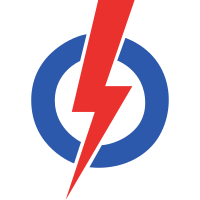People's Action Party
|
People's Action Party
Parti Tindakan Rakyat 人民行动党 Rénmín Xíngdòngdǎng மக்கள் செயல் கட்சி Makkaḷ Ceyal Kaṭci |
|
|---|---|
 |
|
| Chairman | Khaw Boon Wan |
| Secretary-General | Lee Hsien Loong |
| Deputy Chairman | Yaacob Ibrahim |
| Vice Chairman | Tharman Shanmugaratnam |
| Founder | Lee Kuan Yew |
| Founded | 21 November 1954 |
| Headquarters | PCF Building 57B New Upper Changi Road #01-1402 Singapore 463057 |
| Youth wing | Young PAP |
| Membership (2000) |
|
| Ideology |
Third Way Multiracialism Economic liberalism Cultural conservatism Secularism |
| Political position | Centre-right |
| International affiliation | None |
| Colours | White, Blue, Red |
| Parliament |
83 / 101
|
| Website | |
| www |
|
The People's Action Party (abbrev: PAP) is a centre-rightpolitical party in Singapore. Having been the country's ruling party since 1959, it is Singapore's longest-ruling party.
Since the 1959 general elections, the PAP has dominated Singapore's parliamentary democracy and has been central to the city-state's rapid political, social, and economic development. In the 2015 Singapore general election, the PAP won 83 of the 89 constituency elected seats in the Parliament of Singapore, representing 69.86% of total votes cast.
The PAP was formed on 21 November 1954 by Lee Kuan Yew, an English-educated middle-class professional lawyer who had returned from university education in the United Kingdom. He had a vision of full independence for Singapore, and was joined by Lim Chin Siong and Fong Swee Suan despite their ideological differences.
In April 1955, Lim Chin Siong was elected as Assemblyman for the Bukit Timah constituency. Then 22 years old, he was and remained the youngest Assemblyman ever to be elected to office. The following year, Lim and Lee represented the PAP at the London Constitutional Talks, which ended in failure: the British declined to grant Singapore internal self-government. On 7 June 1956, David Marshall, disappointed with the constitutional talks, stepped down as Chief Minister, and was replaced by Lim Yew Hock.
Lee Kuan Yew eventually accused Lim Chin Siong and his supporters of being Communists, though declassified British government documents later suggested that no evidence was ever found that Lim was a Communist.
...
Wikipedia
